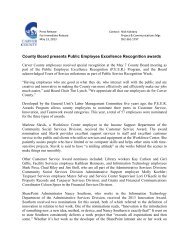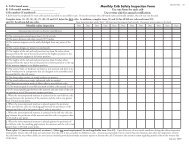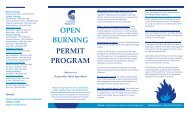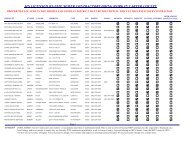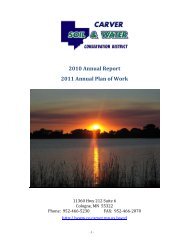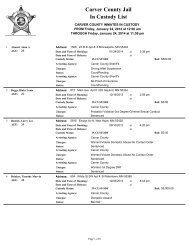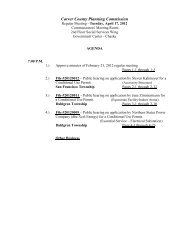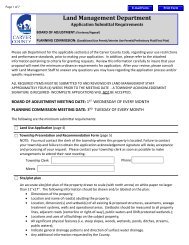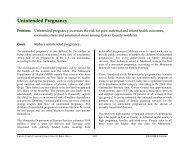Older Adults and Depression - NIMH - National Institutes of Health
Older Adults and Depression - NIMH - National Institutes of Health
Older Adults and Depression - NIMH - National Institutes of Health
You also want an ePaper? Increase the reach of your titles
YUMPU automatically turns print PDFs into web optimized ePapers that Google loves.
doctors are specially trained to treat depression <strong>and</strong><br />
other mental illnesses in older adults.<br />
The doctor or mental health pr<strong>of</strong>essional will ask<br />
about the history <strong>of</strong> your symptoms, such as when<br />
they started, how long they have lasted, their severity,<br />
whether they have occurred before, <strong>and</strong> if so, whether<br />
they were treated <strong>and</strong> how. He or she will then diagnose<br />
the depression <strong>and</strong> work with you to choose the most<br />
appropriate treatment.<br />
It is important to remember that a person with<br />
depression cannot simply “snap out <strong>of</strong> it.” Treatment<br />
choices differ for each person, <strong>and</strong> sometimes different<br />
treatments must be tried until you find one that works.<br />
Medications called antidepressants can work well to<br />
treat depression.They can take several weeks to work.<br />
Antidepressants can have side effects including:<br />
• Headache<br />
• Nausea—feeling sick to your stomach<br />
• Difficulty sleeping or nervousness<br />
• Agitation or restlessness<br />
• Sexual problems.<br />
Most side effects lessen over time. Talk to your<br />
doctor about any side effects you have.<br />
Psychotherapy can also help treat depression.<br />
Psychotherapy helps by teaching new ways <strong>of</strong> thinking<br />
<strong>and</strong> behaving, <strong>and</strong> changing habits that may be



